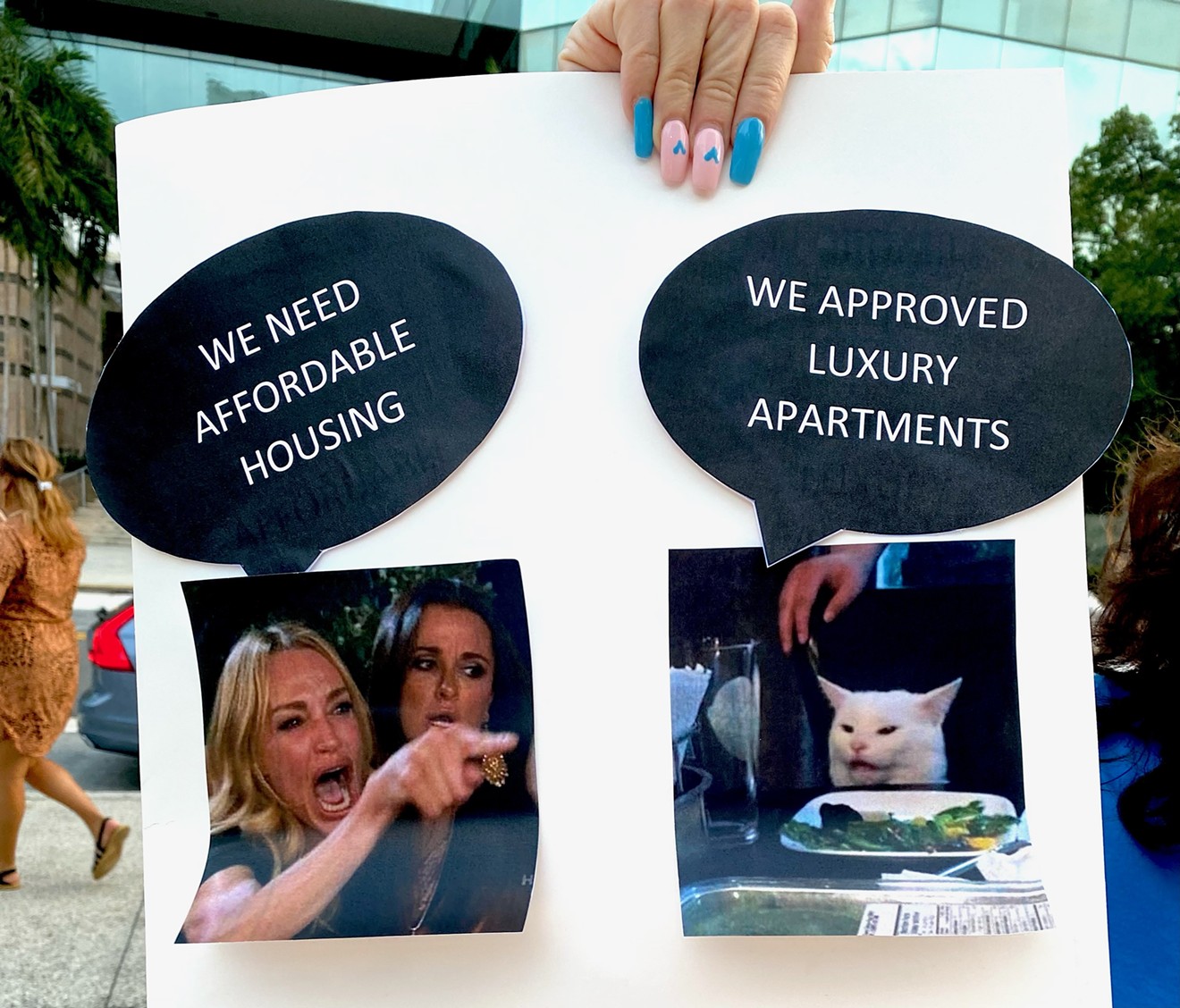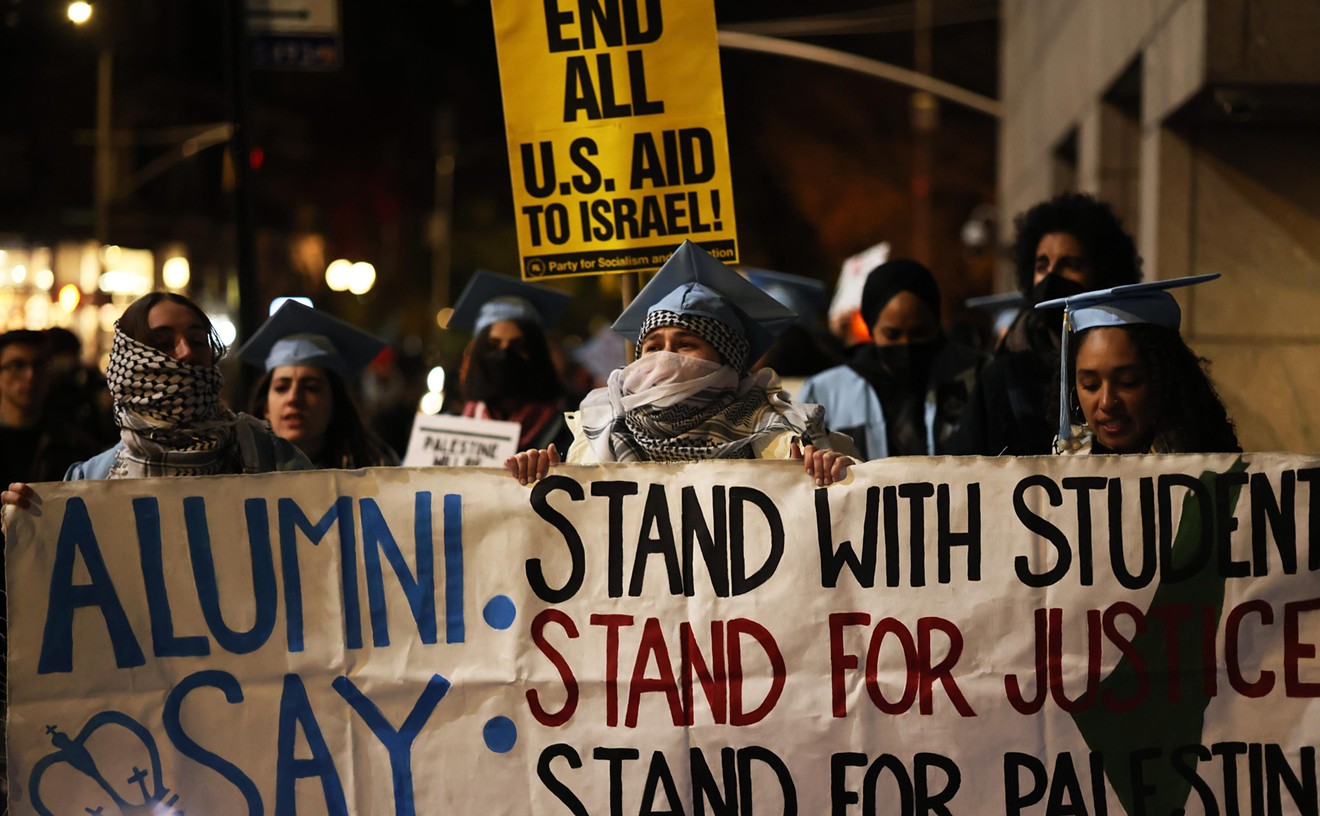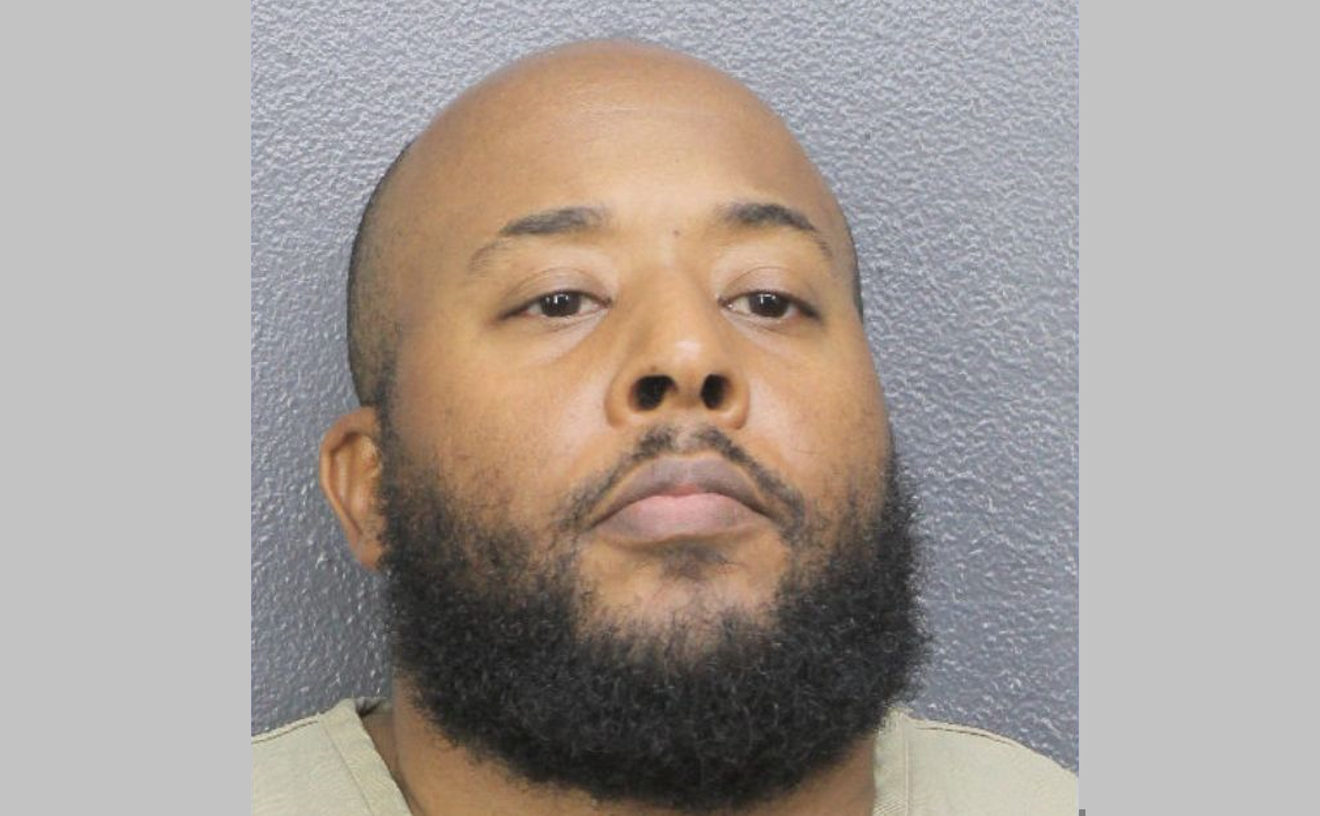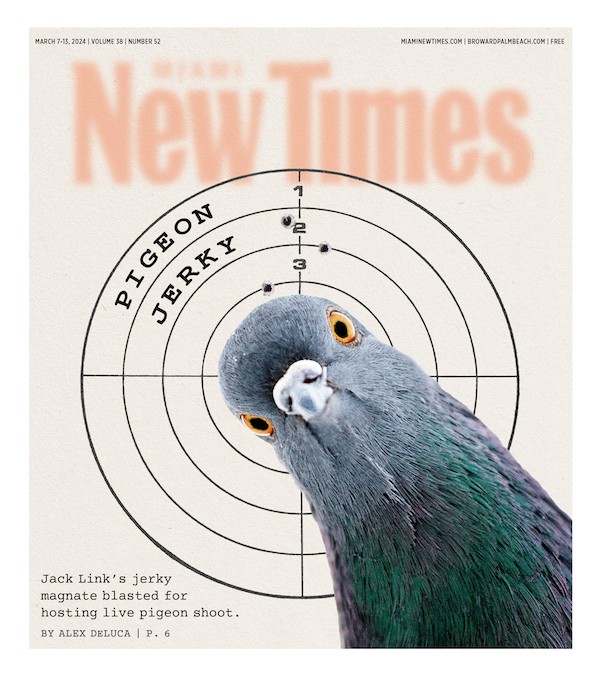After months of discussion and delays, the city took the position that the planned tower at 700 SE Fourth Ave, a project conceived by the AIDS Healthcare Foundation (AHF) housing initiative, would violate city zoning. Officials claimed the building would be operating as a social services facility, an impermissible use of the land because a walkway would connect the tower to the AHF's existing HIV healthcare center.
The foundation insisted the city had been looking for any reason to kill the project to appease well-off residents who did not want "low-income people" in their neighborhood.
"It was not going to be a hospital property," says Ebonni Chrispin, legislative affairs and community engagement director at AHF's Healthy Housing Foundation. "While we have those programs in other areas, and believe it is life-changing programming, we're actually just trying to support the county, the city, and the state in addressing the housing crisis... in particular because people who work in Fort Lauderdale can't actually afford to live here."
At the time, Fort Lauderdale Mayor Dean Trantalis claimed the project was receiving "very mixed reviews" from locals and that the city already had a few workforce housing projects in nearby Flagler Village.
Three years later, a plan by real estate behemoth Related Group and Alta Development to build a 30-story apartment building in Rio Vista, right next to the rejected affordable-housing site, is moving expeditiously through the Fort Lauderdale approval process.
The new project would have 328 apartments with amenities such as a spa, club room, lounge, pet grooming space, pool deck, and parking garage. According to a South Florida Business Journal report, apartments would range from 510 to 1,225 square feet. Plans show the building reaching nearly 340 feet high into the Lauderdale skyline.
Chrispin claims that concerns about crowding and building density, which were front and center during the approval process for AHF's affordable-housing proposal, appear to have conveniently faded away. She went before the city commission on Wednesday, March 8, to highlight the perceived "hypocrisy" and bring the matter to the attention of new commission members.
"Is the Related Group of Miami going to get the same pushback that we received when it comes to density and issues of emergency services getting to the tunnel and all of that? I don't necessarily want to put that firmly on the commission, but I do believe that the commission could have spoken to city staff and worked out an architectural firm to be able to address any concerns [on the 2019 project]," Chrispin tells New Times.

Protesters gathered in March 2023 in Fort Lauderdale to push for housing that won't bankrupt tenants.
Photo by Robin Merrill
Fort Lauderdale resident Robin Merrill, who also spoke out at yesterday's commission meeting, argues that the city's elected officials have broken their campaign promise to fight over-development and address affordable housing.
"Nothing about what they told the citizens that they would do has come true, nothing in regard to stopping over-development, and they haven't done a thing for helping workers stay near where they work downtown," Merrill tells New Times.
At the meeting, Mayor Trantalis maintained that "the commission is looking at every angle" possible to provide affordable housing, but its "hands are often tied by state statute."
The mayor was referencing HB 7103, a Florida bill passed in 2019 that requires local governments to offer incentives or offset costs to developers when mandating affordable units in their projects if the developments fall outside state-designated areas of critical concern.
"It's not that we broke promises — it is just that the state said that if in any way we diminish the profit that a developer would make by requiring them to include affordable housing and not letting them make market-rate housing in their entire project, the city has to write them a check for their lost profit," Trantalis said. "The city is not in a position to give millions of dollars to each developer to provide affordable housing... So don't cast aspersions on the intent and the purpose of decisions being made here on the commission."
Residents have experienced astronomic rent hikes over the past two years across South Florida, making it one of the least affordable regions in the country.
According to Moody's Analytics' recent housing affordability report, Fort Lauderdale is the third most rent-burdened community in the U.S., with 36.7 percent of residents spending more than 30 percent of their income on rent. Miami was even worse, with more than 41 percent of residents rent-burdened.
"There are studio apartments in South Florida starting at $2,000," Chrispin tells New Times. "That is absurd by anyone's estimation."
In response to the out-of-control rise in rent, the mayor last year highlighted a series of local affordable-housing projects, including the Village View complex for senior residents and plans to build 500 residential units on city-owned land in Broadview Park. For a handful of projects, the city has been able to provide waivers of building height limits and other non-monetary concessions to developers to satisfy the 2019 Florida law.
Although she agrees that the city has "done a lot and continues to address the housing crisis," Chrispin believes more can be accomplished.
"While this luxury apartment complex goes through [the Development Review Committee], we are facing the problem that these other opportunities to address low-income housing policy changes — strengthening the tenant bill of rights — are not being done," she says. "Some of that has to do with the state, but... the City of Fort Lauderdale can help."
During the debate over the AHF's proposal three years ago, Merrill recalls hearing wealthy Fort Lauderdale residents complain that the building would be "warehousing" tenants and that they did not want to drive past and see "these people" standing on the sidewalk.
"I used to tell folks, 'Excuse me, is your son just graduating from college, and would you like him to not come back and live in your house?'" Merrill says. "He could live here right down the street from you because this is open for everyone, not just people you think are undesirable. It's for people who can't afford market rate."











